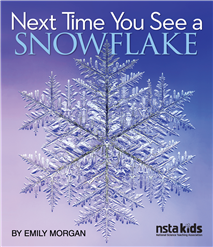All Teaching Strategies resources
Journal Article
Developing Critical Thinking in Biology Through Progressive Writing Assignments
Critical thinking is essential in academia and the workforce. Although writing can be used as a pedagogical tool for fostering deeper subject matter understanding, increased retention, and critical thinking, relatively few science courses are writing...
By Irene Guttilla Reed, Michelle Kraczkowski, Steven Pearlman
Journal Article
Differences in perception of peer interactions in student-centered STEM courses
A study was done at a mid-sized public university in the Midwest of the United States. At this university, there are three large classes taught in Student-Centered Active Learning Environment with Upside-down Pedagogies (SCALE-UP) classrooms: algebra...
By Alison Page, Jennifer Blue
Journal Article
Engaging Middle School Students with the Nature of Particles, Waves, and Light
This three-day unit engages students in the exploration of light behavior and makes connections to the advanced idea of the wave-particle duality of light. Students begin by exploring the behaviors of marbles (particles) as they interact with differe...
By Isaiah Kent-Schneider, Jerrid Kruse, Dan Chibnall, Paige Anderson, Emma Richards, Brooke Christenson
Journal Article
My Students Read Like Scientists. Now Yours Can, Too!
While hands-on activities are important in science, students must have the opportunity to process the ideas and information that stem from those activities. Minds-on science activities, such as literacy integration, support making connections between...
By Mesa Davis, Kadir Demir
Journal Article
Journey of the Monarchs: Studying North America’s Nomadic Butterfly
Citizen Science November/December 2024...
By Jill Nugent
Journal Article
Flipped Science Classrooms and the Cornell Note-Taking Method
The flipped classroom is a relatively new innovation in teaching middle school science; however, students often struggle with taking notes that provide metacognitive cues and reinforce understanding. This paper describes the structure of a flipped mi...
By Edward Miller, Angela Kelly
NSTA Kids
Click here to view video of Next Time You See a Snowflake This book will have you seeing snowflakes in a whole new way. You’ll learn about the science of snowflakes – how they form, why they are six-sided, what conditions are necessary for the...
Reports Article
Freebies and Opportunities for Science and STEM Teachers, October 29, 2024
By Debra Shapiro
Reports Article
Freebies and Opportunities for Science and STEM Teachers, October 22, 2024
By Debra Shapiro
Reports Article
Freebies and Opportunities for Science and STEM Teachers, October 15, 2024
By Debra Shapiro
Reports Article
Freebies and Opportunities for Science and STEM Teachers, October 8, 2024
By Debra Shapiro
Reports Article
Freebies and Opportunities for Science and STEM Teachers, October 1, 2024
By Debra Shapiro
Reports Article
Freebies and Opportunities for Science and STEM Teachers, September 24, 2024
By Debra Shapiro
Journal Article
Teaching Physics as the Awesome Rules of Nature
Focus on Physics...
By Paul G. Hewitt
Journal Article
Science classrooms are most engaging when students have the opportunity to engage in the practices of scientists. Unfortunately, many attempts to incorporate science into the classroom are disconnected from real scientific practice. When classroom sc...
By Ari Geary-Teeter, Thomas McKenna




